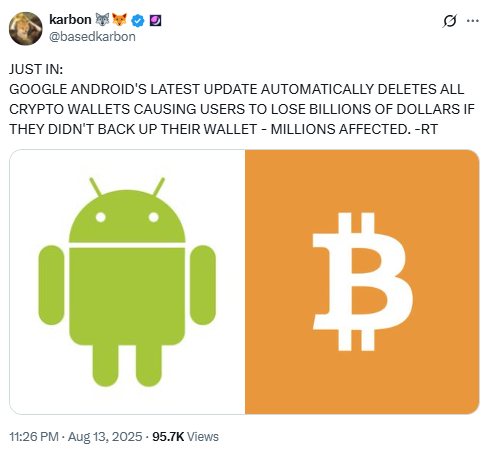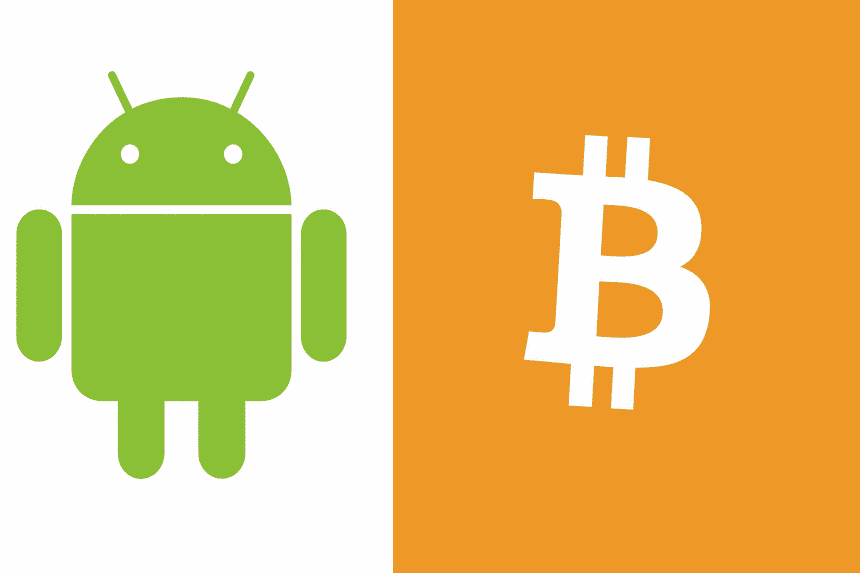On August 13, 2025, Google Play updated its policy to ban cryptocurrency wallet apps that fail to meet local regulatory requirements.
The new Google wallet ban impacts the US, EU, UK, Canada, Switzerland, Japan, Hong Kong, South Korea, Philippines, Indonesia, South Africa, Bahrain, the UAE, and Israel.
The change applies to custodial and non-custodial wallets, but non-custodial wallets face greater risk because many cannot achieve the required compliance.
Popular apps such as Binance wallet and Metamask wallet could be removed alongside smaller crypto wallet services.

Google Play will delist any wallet app that does not register as a money transmitter, digital asset service provider, or an equivalent under local laws.
Developers in France and Germany have extra time to meet MiCA compliance, but enforcement starts immediately in other listed countries.
Non-Custodial Wallets Struggle with Compliance Rules
A non-custodial wallet allows users to hold their own private keys instead of depending on a third party.
While this setup avoids custodial control, it creates compliance issues under the new Google Play crypto wallet policy.
In most affected countries, registration with financial regulators is required. Compliance may include strict anti-money laundering standards and advanced security measures.
FinCEN guidelines in the United States have been criticized for making compliance expensive and complex for non-custodial wallet providers.
If a wallet project cannot meet these demands, it risks being removed from Google Play. In these regions, users might need to switch to non-Google devices or use desktop wallets to keep access to their crypto.
FATF Guidelines and Roman Storm Case Shape Google’s Decision
The Google wallet ban aligns with Financial Action Task Force (FATF) recommendations, even though these guidelines are non-binding.
Google appears to be enforcing these standards ahead of any formal law.
The policy shift comes after the Tornado Cash verdict, where developer Roman Storm was partially convicted for activities tied to the privacy tool.
Even though he avoided the most serious charges, the case raised questions about whether software providers could face liability for illegal actions committed through their platforms.
By applying stricter app policies, Google aims to follow international compliance frameworks and reduce exposure to legal risks.
Researchers note that no current law forces this change, but the Roman Storm case and FATF guidelines have influenced the timing.
Implementation and Potential Global Expansion
The Google Play crypto wallet policy takes immediate effect in most impacted regions. France and Germany’s extended timeline allows them to adjust to MiCA compliance before enforcement.
Google has warned that other countries may face wallet delistings in the future. The company has not confirmed whether already-installed wallets on user devices will be removed.
A year ago, Google’s stance on crypto apps was more flexible. The Google wallet ban now highlights how major technology companies can directly affect crypto access, as mobile wallets are a primary gateway for millions of users worldwide.
Disclosure:This article does not contain investment advice or recommendations. Every investment and trading move involves risk, and readers should conduct their own research when making a decision.
Kriptoworld.com accepts no liability for any errors in the articles or for any financial loss resulting from incorrect information.

Tatevik Avetisyan is an editor at Kriptoworld who covers emerging crypto trends, blockchain innovation, and altcoin developments. She is passionate about breaking down complex stories for a global audience and making digital finance more accessible.
📅 Published: August 14, 2025 • 🕓 Last updated: August 14, 2025


